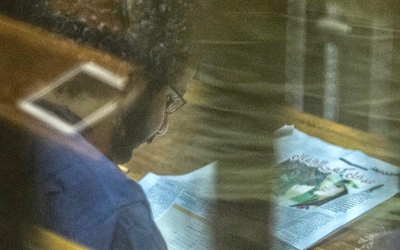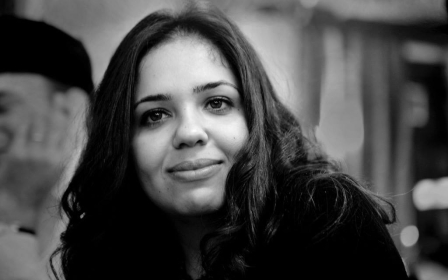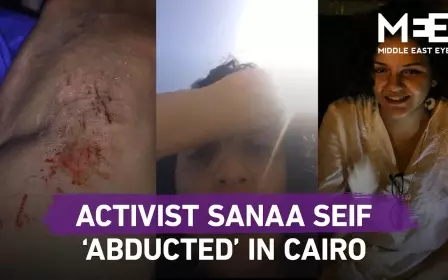Egyptian bellydancer given three year sentence in latest crackdown on 'debauchery'

A high-profile belly dancer has been sentenced to three years in prison and handed a fine of 300,000 Egyptian pounds ($18,500) by the Cairo misdemeanors economic court for violating public morality.
Sama al-Masry was convicted on Saturday for uploading photos and videos onto her social media accounts, accused of doing so with the aim of committing “immorality” and going against the morals of Egyptian society.
A number of users took to social media to denounce the sentencing branding the government "anti-women".
"The hypocrites that arrested her probably love watching belly dancers. Status of human rights in Egypt is a disgrace," one user tweeted.
'The hypocrites that arrested her probably love watching belly dancers. Status of human rights in Egypt is a disgrace'
- Twitter user
"This is why you, Egypt, will never be respected ever, no democracy, no freedom of speech or religion," another criticised.
New MEE newsletter: Jerusalem Dispatch
Sign up to get the latest insights and analysis on Israel-Palestine, alongside Turkey Unpacked and other MEE newsletters
Public prosecutor Hamada al-Sawy ordered al-Masry’s arrest in April after lawsuits were filed against the dancer by Egyptian TV host Reham Saeed and her attorney in which they accused her of “shameful acts” that invite “prostitution”.
The dancer, 42, denied the accusations, stating that the content investigated was stolen and shared from her phone without her consent. Masry has said she will appeal the decision.
MP John Talaat called for legal action against Masry and other women using the social media platform TikTok, stating they were destroying family values and traditions which are illegal according to the law and the constitution.
Masry made her name as an actor, starring in a number of movies, and her YouTube channel gained her notoriety for criticising the Muslim Brotherhood and making fun of then US President Barack Obama in 2013.
A number of women in Egypt have faced similar criticism and accusations of “inciting debauchery” for acts that have challenged Egypt’s conservative social norms.
In 2018, actor Rania Youssef was met with a backlash for wearing a lacy, transparent outfit that exposed most of her legs during the Cairo film festival.
In recent months, Egyptian authorities have increased their crackdown on social media personalities, particularly TikTok, Instagram and YouTube female influencers who have also faced charges of promoting debauchery and prostitution.
University student Haneen Hossam was arrested in April and accused of promoting prostitution for telling her 1.3 million followers how girls could make money on TikTok.
Last month, 17-year-old social media star Menna Abdelaziz was arrested and charged in the same way after she posted a tearful video with a battered face claiming she had been beaten and raped by a fellow influencer.
Egypt’s cyber crime law, which was issued in 2018, can impose a minimum of at least two years' imprisonment and a fine of up to 300,000 Egyptian pounds (US18,537) for anyone found to be creating and running an account on the internet that is in breach of the law.
Since Abdel Fatah al-Sisi seized power in a 2013 coup, hundreds of journalists, activists, lawyers and intellectuals have been arrested and authorities have blocked various websites under the guise of state security.
In line with the ongoing state censorship, the Council for Media Regulation announced a ban earlier this month on media outlets and social media users from addressing various "sensitive" issues, including Ethiopia's Renaissance Dam, the coronavirus and the conflicts in Libya and the Sinai Peninsula.
This article is available in French on Middle East Eye French edition.
Middle East Eye delivers independent and unrivalled coverage and analysis of the Middle East, North Africa and beyond. To learn more about republishing this content and the associated fees, please fill out this form. More about MEE can be found here.





